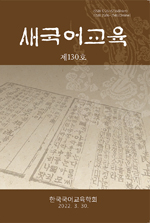18세기에 이르면 전통가전에 대한 변화의 움직임이 포착된다. 그 흐름을 주도한 인물 가운데 『화왕본기』의 작가 조구명이 있다. 그가 다음세대에게도 큰 영향을 끼친 것으로 파악되지만 이안중은 자신의 『안제본기』가 『화왕본기』보다 비교우위에 있음을 자부함으로써 두 작품에 대한 상세한 검증의 필요성을 제기한 셈이 되었다. 인물과 서사기법을 주목한 끝에 필자는 두 작품 모두 가전의 개량화를 추구하고 있음을 엿볼 수가 있었다. 그러나 세부적인 면에서는 큰 차이를 보이고 있었다. 『화왕본기』는 대화위주의 기술에 치중하며 기존 가전과 달리 미모를 사치, 낭비, 변절적 상징의미로 파악하는 관행에 휩쓸리지 않고 인물의 언행을 통해 선악을 재단하고 있으며 불교, 도교 등을 무조건 이단시하던 서사관습을 넘어 부분적이나마 이들에 일정한 의미를 부여하고 있다. 『안제본기』는 가전의 부분적 개량화를 넘어 한층 적극적으로 서사성을 추구한 사례이다. 우선 서사량을 대폭 늘려 복잡한 서사구조, 구성을 소화할 수 있도록 했다. 역사담론에서 다양한 공간과 인물을 끌어오는가 하면 대화, 묘사, 설명 등 어느 한 서술방식을 고집하지 않고 전개 국면에 적합한 서술방식을 선별하여 이야기의 생동감을 살려나가는데 주력한 점도 주목할 만하다. 이 작품은 섣불리 선악으로 인물을 재단하기보다는 장면제시와 보여주기 기법을 동원해 인물의 속성을 드러내고자 하였다. 결과적으로 조구명보다는 이안중이 가전의 한계를 보다 정확히 간파하고 있었음이 드러난다.
Movement of a change is captured in traditional Gajeon(假傳) when reaching the 18th century. There is the author Jo Gu-myeong in Hwawangbongi in the middle of figures who initiated its flow. He is grasped to having greatly influenced even the next generation. However, Lee An-jung was proud of which his <Anjebongi> has comparative advantage over <Hwawangbongi>. Thus, necessity of the detailed verification on two works can be said to have been raised. In the wake of paying attention to the character and narrative technique, the writer could observe that both works are pursuing improvement in Gajeon(假傳). However, in the detailed aspect, the big difference was being shown. <Hwawangbongi> is biased to the technique of centering on conversation, and is judging good and evil through the character's words and action without being swayed by custom, which grasps the good looks as the significance of luxury, waste, and betrayal, unlike the existing Gajeon, and is giving consistent significance to these things even partially beyond the narrative custom, which had regarded unconditionally Buddhism and Taoism as heresy. <Anjebongi> is a case that pursued narrative characteristic more positively beyond partial improvement in Gajeon. First of all, it made it available for absorbing the complex narrative structure and composition by sharply increasing the narrative volume. It deserves to be paid attention even to what concentrated on proceeding with taking advantage of vividness of a story by sorting out narrative method proper for the development aspect, without sticking to any one narrative method such as conversation, depiction, and description while bringing diverse space and characters from historical discourse. This work aimed to reveal the attribute of character by mobilizing the technique of suggesting and showing scene, rather than rashly judging character with good and evil. In a sense of having embodied its teaching as the theme of Gajeon while relying on Seogyeong(書經) by <Hwawangbongi> and on Chunchu(春秋) by <Anjebongi>, the starting point of creation can be said to be same. However, Gajeon as the result is showing quite difference. Consequently, compared to Jo Gu-myeong, Lee An-jung is being revealed to more correctly detecting the limitation of Gajeon. In such sense, it is seen to be able to agree to some extent to Lee An-jung's pride of <Anjebongi>.
1. 문제제기
2. 思想的 典據로서 『書經』 와 『春秋』
3. 인물설정 및 서술방식
4. 대비결과와 의미
5. 결론
(0)
(0)
